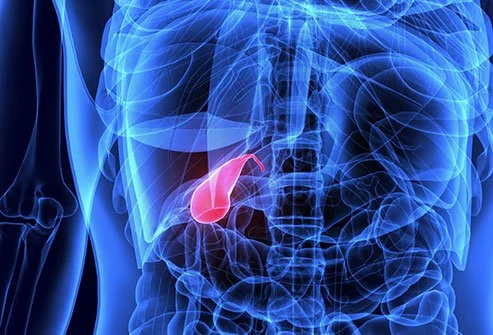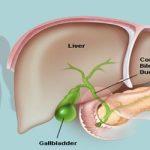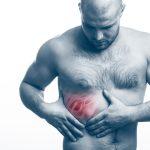Do you experience recurring pain in the upper right abdomen? Are you wondering what might be causing it? Gallbladder pain can be quite discomforting and may indicate an underlying issue. In this article, we will explore the various causes of gallbladder pain, providing you with a comprehensive understanding of the reasons behind this condition.
Introduction
The gallbladder is a small organ located beneath the liver, responsible for storing bile produced by the liver. Gallbladder pain, also known as biliary colic, can occur due to various reasons. Understanding the causes of this pain is essential for proper diagnosis and treatment.
Anatomy of the Gallbladder
Before delving into the causes of gallbladder pain, let’s briefly discuss the anatomy of the gallbladder. The gallbladder is a pear-shaped organ situated on the right side of the abdomen, just below the liver. It stores bile, a digestive fluid produced by the liver, and releases it into the small intestine to aid in the digestion of fats.
Common Causes of Gallbladder Pain
Gallstones
Gallstones are one of the most common causes of gallbladder pain. These hardened deposits form in the gallbladder, obstructing the flow of bile. The presence of gallstones can lead to intense pain, especially after consuming fatty or greasy foods.
Biliary Colic
Biliary colic refers to the intermittent pain caused by the temporary blockage of the gallbladder or bile ducts. It is often a result of gallstones or the movement of gallstones within the bile ducts. The pain typically occurs in the upper right abdomen and can last for several minutes to a few hours.
Cholecystitis
Cholecystitis is the inflammation of the gallbladder, usually caused by gallstones that block the cystic duct. The inflammation can lead to severe pain, accompanied by tenderness in the abdomen, fever, and sometimes nausea and vomiting.
Gallbladder Dyskinesia
Gallbladder dyskinesia is a condition characterized by abnormal gallbladder contractions. It can cause pain and discomfort in the upper abdomen, often after consuming meals. The exact cause of gallbladder dyskinesia is not well understood, but it is believed to be related to a dysfunction in the coordination of gallbladder contractions.
Gallbladder Cancer
Although rare, gallbladder cancer can also cause gallbladder pain. It is more common in individuals with a history of gallstones or chronic inflammation of the gallbladder. Gallbladder cancer often presents with other symptoms such as jaundice, weight loss, and abdominal swelling.
Other Causes
In addition to the above-mentioned causes, gallbladder pain can also be caused by other factors, including gallbladder polyps, pancreatitis, gallbladder abscess, and referred pain from other organs in the abdomen.
Symptoms of Gallbladder Pain
Gallbladder pain can manifest in different ways, and the symptoms may vary from person to person. Some typical indications include:
- Pain in the upper right abdomen or the middle of the abdomen
- Pain that radiates to the back or shoulder blades
- Nausea and vomitingWhat are the risk factors for developing gallstones? What are the risk factors for developing gallstones? What are the risk factors for developing gallstones? What are the risk factors for developing gallstones?
- Bloating and gas
- Indigestion and heartburn
- Fever and chills (in cases of infection or inflammation)
Diagnosis
To diagnose the cause of gallbladder pain, healthcare professionals may employ various diagnostic methods. These may include:
Medical History and Physical Examination
The doctor will review your medical history and inquire about the nature of your symptoms. They will also perform a physical examination to assess the tenderness and swelling in the abdomen.
Imaging Tests
Imaging tests such as ultrasound, computed tomography (CT) scan, or magnetic resonance imaging (MRI) may be ordered to visualize the gallbladder and identify any abnormalities, such as gallstones or inflammation.
Blood Tests
Blood tests can help determine if there are any signs of infection, inflammation, or abnormalities in liver function.
Endoscopic Retrograde Cholangiopancreatography (ERCP)
ERCP is a procedure that combines endoscopy and X-rays to examine the bile ducts. It can help detect gallstones or other obstructions in the bile ducts.
Treatment Options
The treatment of gallbladder pain depends on the underlying cause and the severity of the symptoms. The following treatment options may be considered:
Lifestyle Changes
In mild cases, lifestyle modifications can help alleviate gallbladder pain. These may include maintaining a healthy weight, following a low-fat diet, and avoiding trigger foods that worsen symptoms.
Medications
Medications such as pain relievers, anti-inflammatory drugs, or medications to dissolve gallstones may be prescribed to manage pain and reduce inflammation.
Surgical Interventions
If gallstones or other gallbladder issues persist, surgical interventions may be necessary. The most common surgical procedure is laparoscopic cholecystectomy, where the gallbladder is removed through small incisions.
Alternative Therapies
In some cases, alternative therapies such as herbal remedies, acupuncture, or gallbladder flushes are explored. However, consulting with a healthcare professional before attempting alternative treatments is important.
Prevention Tips
While some causes of gallbladder pain cannot be prevented, there are steps you can take to reduce the risk. Here are some prevention tips:
- Maintain a healthy weight: Obesity is a risk factor for gallstones and gallbladder-related issues. Aim to achieve and maintain a healthy weight through a balanced diet and regular exercise.
- Eat a low-fat diet: Reduce your intake of fatty and fried foods, as they can trigger gallbladder pain. Opt for a diet rich in fruits, vegetables, whole grains, and lean proteins.
- Stay hydrated: Drinking an adequate amount of water helps in maintaining the flow of bile and preventing the formation of gallstones.
- Exercise regularly: Engage in regular physical activity to promote overall health and reduce the risk of gallbladder problems.
- Gradual weight loss: If you need to lose weight, do it gradually and avoid crash diets, as rapid weight loss can increase the risk of gallstone formation.
- Avoid rapid changes in diet: Sudden and drastic changes in your diet can disrupt the normal functioning of the gallbladder. Make dietary changes gradually.
- Control cholesterol levels: High cholesterol levels can contribute to the formation of gallstones. Manage your cholesterol levels through a healthy diet and, if necessary, medication prescribed by your doctor.
- Limit alcohol consumption: Excessive alcohol consumption can increase the risk of gallbladder problems. Drink alcohol in moderation or avoid it altogether.
- Be cautious with medication: Some medications may increase the risk of gallbladder issues. Discuss your medications with your healthcare provider to ensure they are safe for your gallbladder health.
- Manage stress: Chronic stress can affect the overall functioning of your body, including the gallbladder. Find healthy ways to manage stress, such as exercise, relaxation techniques, or seeking support from loved ones.
Conclusion
Gallbladder pain can be caused by various factors, including gallstones, inflammation, dyskinesia, and even gallbladder cancer. Identifying the underlying cause is crucial for effective treatment. By understanding the causes, symptoms, and available treatment options, you can make informed decisions regarding your gallbladder health. Remember to consult with a healthcare professional for proper diagnosis and personalized advice.
FAQs (Frequently Asked Questions)
What are the risk factors for developing gallstones?
Several factors can increase the risk of developing gallstones, including obesity, a high-fat diet, rapid weight loss, age (40 or older), female gender, family history, and certain medical conditions such as diabetes.
Can stress cause gallbladder pain?
While stress itself may not directly cause gallbladder pain, it can contribute to digestive issues and exacerbate symptoms in individuals already prone to gallbladder problems


